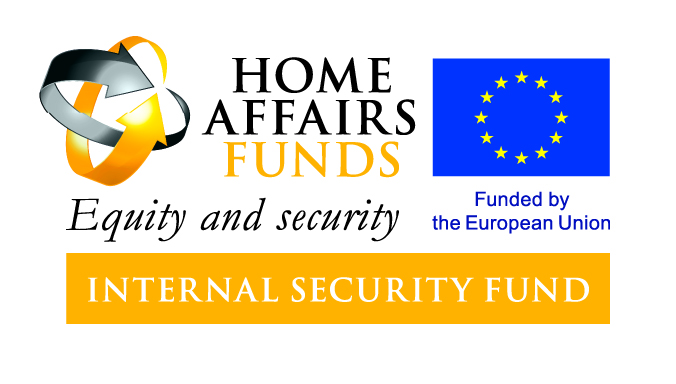-
Who We Are
WHO WE AREThe International Organization for Migration (IOM) is part of the United Nations System as the leading inter-governmental organization promoting since 1951 humane and orderly migration for the benefit of all, with 175 member states and a presence in over 100 countries. IOM has had a presence in Hungary since 1992.
About
About
IOM Global
IOM Global
-
Our Work
Our WorkAs the leading inter-governmental organization promoting humane and orderly migration, IOM plays a key role to support the achievement of the 2030 Agenda through different areas of intervention that connect both humanitarian assistance and sustainable development. Across Hungary, IOM provides a comprehensive response to the humanitarian needs of migrants, returnees and host communities.
What we do
What we do
Cross-cutting (Global)
Cross-cutting (Global)
- Data and Resources
- Take Action
- 2030 Agenda
IOM AND UNHCR PROMOTE SAFE EMPLOYMENT FOR MIGRANTS AND REFUGEES IN HUNGARY
28 November 2023 (Budapest, Hungary) – On 25 November, the International Organization for Migration (IOM) – Hungary and UNHCR Representation for Central Europe, organized the first Job Fair for displaced people from Ukraine, and from other countries legally residing in Hungary, who are experiencing difficulties accessing the Hungarian job market.
The Job Fair, that took place at the Devai Inn, a community center for refugees from Ukraine run by the Budapest-Józsefváros Lutheran Congregation, provided people with the opportunity to meet employers and recruitment agencies, get professional advice on their CVs and job applications from trained IOM Labour Market Counsellors, participate in workshops on career development and safe employment, and learn about their labour rights in Hungary. UNHCR and IOM provided interpretation for the participants in Ukrainian, Russian, English and Hungarian.
Hungary, like many other European countries, is facing multifaceted challenges in its labour market including matching skills to needs. At the same time, thousands of highly qualified refugees from Ukraine and other parts of the world are looking for opportunities to integrate into local society, including the labour market. Addressing these challenges requires a complex approach that includes, among other things, the recruitment of refugee and migrant workers. Integrating refugee and migrant workers into the labour market would also reduce their dependence on state provided financial aid and can contribute to the local economies as taxpayers.
“Hiring migrants and refugees can significantly contribute to addressing skill shortages, fostering innovation, and infusing workplaces with fresh perspectives,” stated Dániel Bagaméri, Head of Office at IOM Hungary. “Despite their potential, many face barriers in securing employment due to systemic hurdles. IOM and its partners are dedicated to eradicating these disparities, ensuring equal opportunities for all job seekers, particularly those displaced from Ukraine. It's vital that labor migrants are well-informed about their rights and employment standards to prevent vulnerability to exploitation during their job search or employment.”
Refugee and migrant workers often bring diverse skill sets that enrich the local workforce, bridge gaps in critical sectors, foster innovation and boost overall economic productivity. Labour mobility can also contribute to cultural diversity and cross-cultural exchange, enhancing social cohesion and understanding.
“Socio-economic inclusion of refugees can be a positive force for both refugees and their hosting countries,” said Nicole Epting, UNHCR Representative for Central Europe. “Refugees bring with them a range of skills and experience – one third of refugees from Ukraine in Hungary have higher education for example. Finding a job helps refugees have some stability in displacement, be self-sufficient and contribute to the societies that host them, until such time as it is safe for them to return home.”
A transparent and ethical labour migration system is crucial to striking the right balance between addressing labour shortages and ensuring that the well-being and rights of all workers, both domestic and foreign. Labour mobility, when managed effectively, brings forth an array of advantages for countries of origin, destination countries, and migrant workers themselves. IOM and UNHCR advocate for ethical recruitment practices that prioritize the well-being of refugee and migrant workers. This includes ensuring that recruitment agencies adhere to fair labour standards, do not charge exorbitant fees, and provide transparent information about job opportunities and working conditions. The Job Fair was just one best practice to offer concrete solutions to safe labour market access and integration for refugees and migrants.
Photo gallery of the event is available here.
For more information:
- Book a free appointment with an IOM Labour Market Counsellor here
- IOM Info Pack
- IOM Regional Quarterly Overview of the Ukraine Response and Access to Labour Markets and Employment in Europe
- Displacement Tracking Matrix - Hungary
- Menedék Hungarian Association for Migrants labour market videos and dedicated webpage
The Job Fair was organized and funded as part of the Enhancing Social Inclusion Opportunities for Displaced People Fleeing Ukraine project (MMIA-2.2.15/17-2023-00003; running between 1SEPT-31DEC 2023 with a total funding of HUF 120,440,693) co-financed by the Asylum, Migration and Integration Fund of the European Union (75%) and the Hungarian Ministry of Interior (25%).




